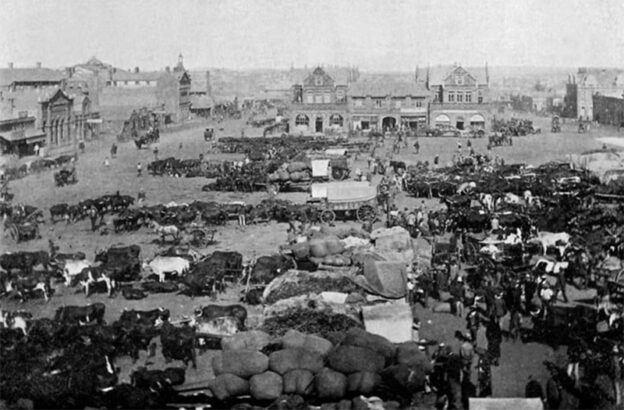Effects of the Mineral Discovery on Africans
Qn. How did the mineral discovery affect the Africans between 1867 and 1910?
- Some lucky Africans acquired jobs in the mines and industries and started earning money.
- After getting money they were able to send their children to school, thereby creating a new class of educated (elite) Africans e.g. Nelson Mandela, Albert Luthuli, Robert Sobukwe, Walter Sissulu, etc.
- These educated Africans championed the rise of African nationalism by forming political parties like the African National Congress [A N C ]
- Using these Political Parties, Africans came out to oppose White mistreatment and fight for mineral rights.
- Africans standards of living improved as a result of getting jobs in the mines, industries and agricultural farms.
- The local markets were enlarged and somehow Africans got where to sell their food.
- Agriculture was boosted so as to feed the increased numbers of mine workers.
- Africans were able to acquire guns although they were of poor quality.
- There was rural urban migration as Africans moved to towns and mines to look for jobs.
- There was domestic violence as families broke up because of men overstaying away from their homes busy working in the mines.
- Africans lost land especially where minerals had been discovered which resulted into displacement of Africans. Those who were displaced were forced to live in the reserves.
- There was a problem of slums (shanty towns) that surrounded most mine centers such as Soweto. The slums were characterized by poor facilities, high crime rate, congestion, etc.
- Africans lost a lot property in the process of displacement e.g. houses, farm land.
- Africans suffered from various diseases like T.B, STDs as a result of copying bad European habits like gambling, smoking and prostitution.
- There was a lot slavery and enslavement as a result of confinement and mistreatment of Africans in the mines,
- Africans were discriminated by the whites in employment and were given dirty and unskilled jobs only.
- Africans provided the muscles as whites provided the brains i.e Africans were to do manual jobs as whites did office jobs. Africans were even over worked and paid low wages for their labour.
- There was loss of African cultures and traditional practices since many people adopted Western cultures especially those who went to towns.
- Marriage was also postponed as people looked for money and when they married, the marriage was monogamous.
- Tribal barriers were removed as people went to towns and stayed together in mining areas.
- Money became a symbol of status but not cows, children and wives as it was before.
- The discovery of minerals promoted racial segregation of Africans as they were considered inferior as second class citizens.
- The racial segregation laid ground for the Apartheid Policy in S.A.
- African rulers became powerless because they had lost their powers and control of their economy.
- Africans stopped respecting local leaders since they had no control over them.
- Africans were no longer dependent on the British for protection as it was before.
- British imperialism increased as Swaziland, Lesotho, and Botswana were annexed.
- Enmity between Africans and Whites worsened as the Whites became richer and Africans poorer.
- There were increased conflicts between Africans and whites that resulted into wars like the 1879 and 1906 Anglo-Zulu wars.
- African societies were defeated and lost their independence to the Whites.
- Agriculture in many African societies declined since farming was neglected for better jobs in the mines. This resulted into famine in many African societies.
- Many Africans lost lives in the mining accidents and industries.
- In conclusion the effects of mineral discovery on the Africans were social, economic and political both positive and negative although the majority were negative.

